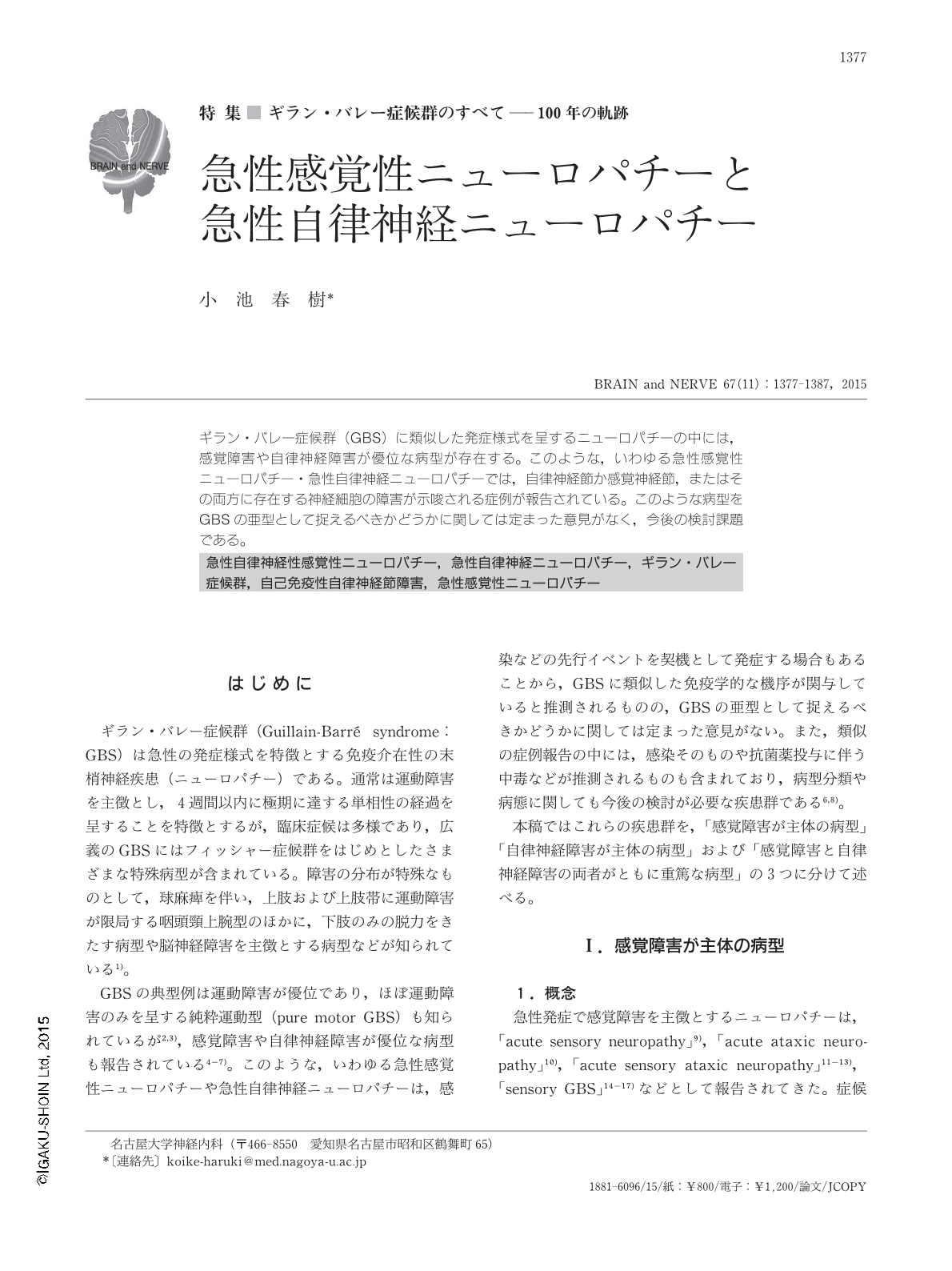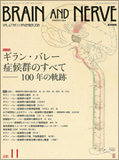Japanese
English
- 有料閲覧
- Abstract 文献概要
- 1ページ目 Look Inside
- 参考文献 Reference
ギラン・バレー症候群(GBS)に類似した発症様式を呈するニューロパチーの中には,感覚障害や自律神経障害が優位な病型が存在する。このような,いわゆる急性感覚性ニューロパチー・急性自律神経ニューロパチーでは,自律神経節か感覚神経節,またはその両方に存在する神経細胞の障害が示唆される症例が報告されている。このような病型をGBSの亜型として捉えるべきかどうかに関しては定まった意見がなく,今後の検討課題である。
Abstract
From the perspective of neuropathies with an acute onset mimicking that of Guillain-Barré syndrome (GBS), cases with profound sensory and/or autonomic impairment without any significant weakness have been reported. Although the possibility of infectious or toxic etiologies should be carefully excluded, immune mechanisms similar to those in GBS are suggested to be involved in these so-called acute sensory neuropathies and acute autonomic neuropathies. The types of neuropathy include those with predominant sensory manifestations, predominant autonomic manifestations such as autoimmune autonomic ganglionopathy, and both sensory and autonomic manifestations such as acute autonomic and sensory neuropathy. Neuronopathy in the sensory and/or autonomic ganglia (i.e., ganglionopathy) has been commonly suggested in patients with these types of neuropathies. The presence of Anti-GD1b antibodies has been reported in some of the patients with acute sensory neuropathy with deep sensory impairment, whereas anti-ganglionic acetylcholine receptor antibodies are reported to be present in half of the patients with autoimmune autonomic ganglionopathy. The discovery of anti-ganglionic acetylcholine receptor antibodies significantly expanded the spectrum of autoimmune autonomic ganglionopathy. This is because some of the patients with chronic progression mimicking neurodegenerative diseases such as pure autonomic failure were positive for these antibodies. In contrast, pathologically significant autoantibodies have not been identified in acute autonomic and sensory neuropathy. Further studies are needed to clarify the pathogenesis and the spectrum of these types of neuropathies.

Copyright © 2015, Igaku-Shoin Ltd. All rights reserved.


